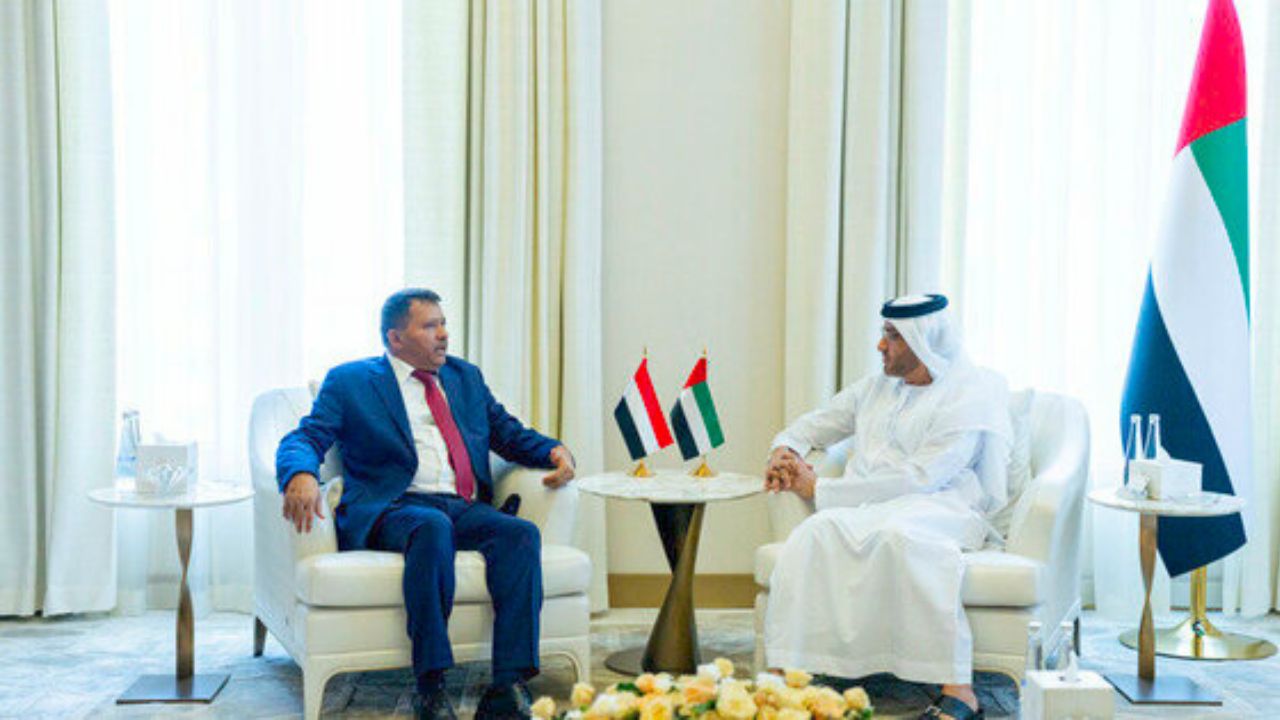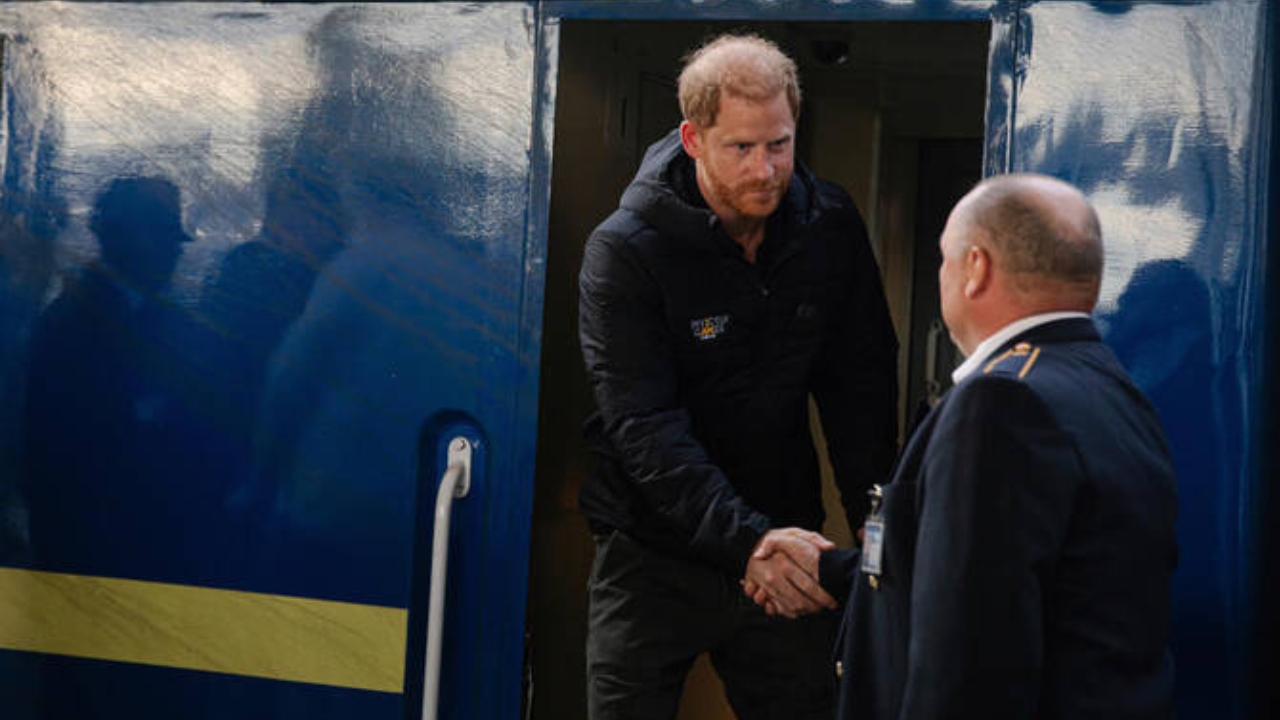
UAE and Yemen Strengthen Legal and Judicial Cooper
UAE and Yemen attorney generals met in Abu Dhabi to strengthen legal ties, enhance public prosecutio

Photo:AP
When Prince Harry, the Duke of Sussex, made a surprise trip to Ukraine in mid-August 2025, the news quickly spread across the globe. At a time when the war in Ukraine continues to take heavy tolls on both soldiers and civilians, Harry’s visit stood out not as a political move, but as an act of human solidarity. His presence among the wounded soldiers recovering from battle injuries was both symbolic and profoundly personal, given his own history as a military veteran.
A Personal Link to Soldiers’ Struggles
Prince Harry has long demonstrated his deep respect and empathy for servicemen and women. Having served two tours in Afghanistan during his time with the British Army, he knows firsthand the risks, trauma, and lifelong effects of combat. He has also been a driving force behind the Invictus Games, an international sports event for wounded, injured, and sick service personnel.
This connection made his visit to Ukraine deeply personal. Meeting wounded soldiers in hospitals and rehabilitation centers, he listened to their painful yet courageous stories. He offered not only words of encouragement but also a strong message: that the sacrifices of Ukrainian troops are being recognized far beyond their homeland.
A Boost for Morale
For soldiers battling both physical injuries and emotional scars of war, moments of recognition go a long way. Prince Harry’s arrival came without prior publicity, ensuring it was seen not as a carefully staged event but as a genuine effort to connect with those serving on the frontlines of Ukraine’s defense.
Ukrainian officials expressed gratitude, noting that his visit lifted spirits among troops who often feel forgotten in the shadow of diplomacy and daily headlines about global politics. Soldiers reportedly said his attention reminded them that their struggle is not invisible.
International Symbolism
Prince Harry’s surprise trip carries broader meaning in the international context. Though he is no longer a working member of the British Royal Family, his global presence remains significant. This visit is a reminder of the influence individuals can have in highlighting humanitarian needs without aligning strictly with political agendas.
While governments coordinate sanctions, negotiations, and emergency aid, Harry’s presence focused on the human side—on the scars carried by the men and women who risk everything for their nation’s survival. It underscored that behind every news report about frontlines and artillery battles lie thousands of personal stories of loss, resilience, and survival.
Continuing Support for Veterans
Ever since founding the Invictus Games in 2014, Prince Harry has been an international voice for supporting wounded veterans. The Games, which bring together service personnel from around the world, offer a platform where recovery and rehabilitation are celebrated through sports and camaraderie. For many Ukrainian troops recovering from injury, taking part in such programs has been a source of healing and motivation.
In this sense, Harry’s visit to Ukraine was not disconnected from his previous commitments. Rather, it fit seamlessly into his personal mission to stand with veterans—one that transcends nationality and politics.
Reactions in Ukraine and Beyond
The Ukrainian government welcomed Harry warmly, with senior officials praising his “humanitarian spirit.” Civil society groups also highlighted how his visit drew public attention to the ongoing struggles of wounded soldiers, including the need for medical supplies, rehabilitation facilities, and psychological support.
Outside Ukraine, the visit was widely covered in British, American, and European media. Many editorials emphasized how figures outside formal government structures can still play an important role in keeping global focus on ongoing conflicts. For some critics, this kind of engagement from a royal figure might even be more effective than political leadership, precisely because it comes across as personal and heartfelt rather than strategic.
The Human Cost of War
Prince Harry’s visit necessarily drew focus back to the wider suffering in Ukraine. Thousands of soldiers bear injuries—physical and psychological—that will last a lifetime. Hospitals face overwhelming demand, and families struggle to provide care. Meanwhile, the conflict continues to displace millions and devastate towns and cities.
Harry’s conversations with the wounded symbolized not just recognition of these hardships, but also a call to the world not to overlook the ongoing human tragedy. In his quiet way, by showing up, he reminded international audiences that the story of Ukraine is not only about geopolitics but also about people—sons, daughters, mothers, and fathers—paying the price of war.
Why This Visit Matters
The importance of Harry’s trip lies in its timing and its intent. At a stage when global attention often shifts rapidly from one crisis to another, maintaining focus on the suffering of Ukraine’s people is an uphill battle. His visit re-centered attention on the individuals, reminding the international community not to grow numb to the ongoing pain of the conflict.
For Ukrainian soldiers, the gesture also demonstrated that they are not isolated in their struggle—that their sacrifices are being acknowledged beyond borders. In the long road toward recovery and eventual peace, such gestures of recognition and solidarity can be as powerful as material aid.